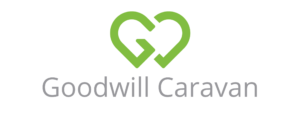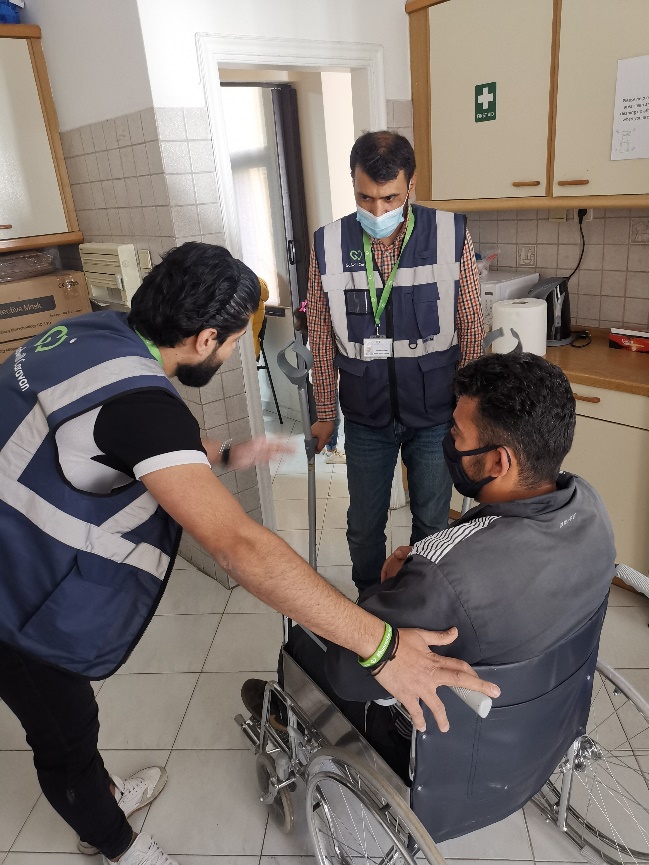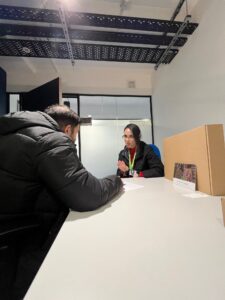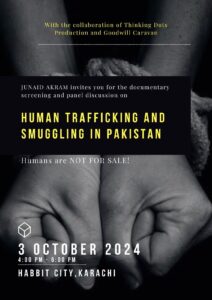GWC Medical Office: Exceeding Expectations in Making a Difference
One of the most exciting part of humanitarian aid work is seeing the impact of our protection services. Recently we have had the chance to review and compile some impact measures of GWC Medical Office over the past 6 months, and we would like to share some of the exciting results which went beyond our expectations.
GWC’s Medical Office works in coordination with the GWC Legal Office and Emergency Shelter Project of our core Action Triangle to assist forcibly displaced migrants overcome barriers to accessing essential healthcare services. The Office is located at our Sallam Centre headquarters in central Athens, and is staffed by healthcare coordinators, social caseworkers, a reception team, interpreters, a driver, as well as a project coordinator who provides oversight. Together, they book appointments, host outreach clinics, distribute medicine, provide transport services, arrange treatment plans, and coordinate care for beneficiaries with the appropriate health care facilities. The Office also sends interpreters and social workers to accompany and advocate for beneficiaries at their medical appointments. We also ensure that children are up to date with their vaccinations and provide essential medications to families living in refugee camps. This support is done in coordination with key partner organisations, including Agia Sofia Children Hospital, Médecins Sans Frontières (Doctors without Borders), Medical Volunteers International, and CHEERing.
During the past 6 months, GWC Medical Office supported over 2,080 beneficiaries in accessing medical services and supplies to address a wide range of healthcare needs. This total figure includes the full range of services offered out of our Medical Office in central Athens as well as outreach services to distribute medical supplies. In the latter case, our supplies of paediatric and maternal medication reached 1,500 vulnerable beneficiaries living in refugee camps across Greece. At the GWC Medical Office in Athens, our team worked on cases with more complex needs for refugees and refugee families.
The chart below gives a breakdown of the beneficiaries by country of origin. We saw a similar demographic composition as in past periods, with a slight uptick in beneficiaries from Afghanistan.

Through the direct assistance of GWC Medical Office, these beneficiaries accessed a wide variety of medical services and supplies to address varying health care needs, with 28% of all beneficiaries accessing more than 1 medical service.

In addition to general check-ups, beneficiaries and beneficiary families attended 268 specialised medical appointments, including among others:
37 visits to see the dentists
29 visits to see an orthopaedist
22 visits to see the eye doctor
22 visits to see a cardiologist
16 visits to a pathologist
14 visits to see a dermatologist
11 visits to see a neurologist
11 visits to a diabetologist
5 visit to see a gynaecologist
5 visits to a pulmonologist
4 visits to see a urologist
2 visits to see the ear, nose, and throat doctor.
2 visits to see a gastrologist
The Medical Office also supported beneficiaries in accessing specialised medical examinations and treatments, including blood tests, vaccinations, MRIs, CT scans, X rays, ultrasounds, pulmonary function tests, radiation therapy, ECGs, EMGs, ENTs, as well as surgeries. Finally, in addition to providing essential medication to over 1,500 beneficiaries living in refugee camps, GWC medical office also purchased specialised medicine and medical equipment for 22 beneficiary families, including prescription eyeglasses, wheelchairs, blood glucose & blood pressure monitors, medical electrical sockets, syringes, as well as medicine to treat diabetes, hypertension, dermatological disorders, and other conditions.
At the start of the funding period, the Medical Office set out to assist up 700 forcibly displaced migrants and ended up exceeding these goals by 3-fold. The team at GWC is very pleased one our main protection projects was able assist so many vulnerable beneficiaries access vital healthcare services – all which was made possible through the generous support of donors and partner organisations.



